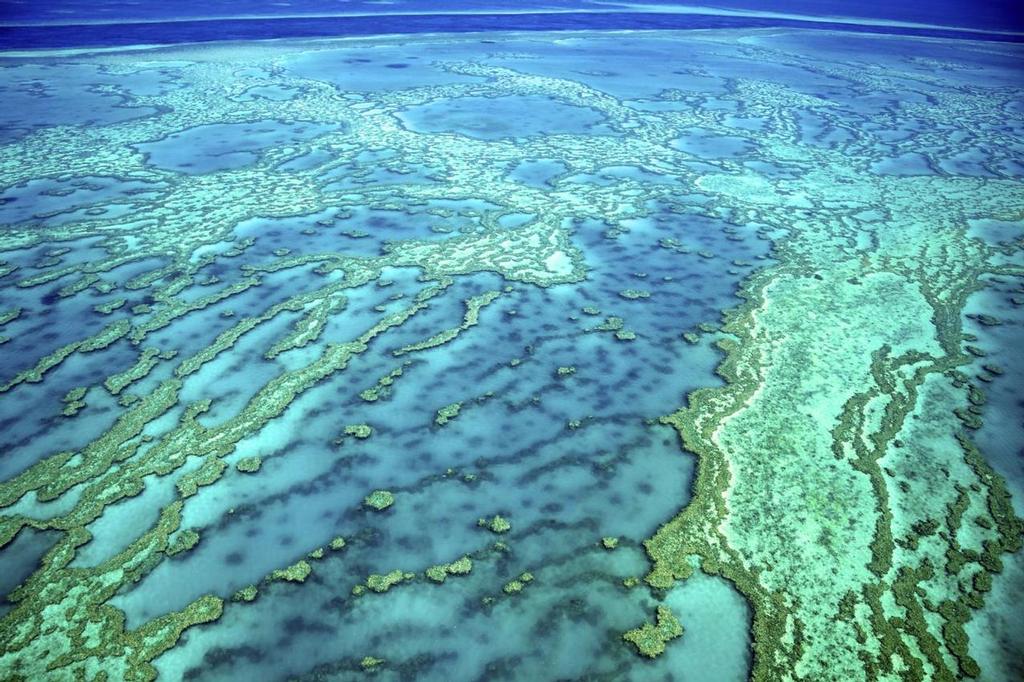Great Barrier Reef in a bad state, and getting worse
by Media Services on 29 Jul 2014

Great Barrier Reef SW
The Great Barrier Reef is in its worst state since it was World Heritage-listed more than two decades ago, and getting worse, scientists told a Senate inquiry last week.
Scientists from the Australian Coral Reef Society and University of Queensland were among several witnesses before the first hearing of the inquiry held in Brisbane.
While the reef has suffered from a range of environmental challenges over that time, the scientific verdict raised during the hearing was that water quality was the most urgent issue facing the reef.
Despite the risks posed by tropical storms, the crown of thorns starfish and run-off, those present also raised climate change as the biggest longer-term threat to the reef's future.
The challenges, summarised in a 2012 Australian Institute of Marine Science research paper, were being complicated by dredging and port developments, which would prevent future recovery from storms and other problems.
Coral Reef Society president Professor Peter Mumby told the committee he believed the reef in 2050 would not be the one seen today, predicting it would be covered by seaweed and algae where coral once thrived.
He said if nothing changed in the management and governance of the reef, it would be 'vastly diminished', and that it was in its 'worst state since records began'.
'It will be really pretty ugly,' Professor Mumby said. 'And the ability to earn a livelihood will be vastly diminished.
'The reef is in the worst state it’s ever been in since records began. There is so much scope to improve governance.'
His statements were backed by climate change reef scientist Professor Ove Hoegh-Guldberg, who told the committee that current management efforts were 'inadequate'.
He pointed to the state and federal government strategic assessments as inadequate, and lamented the handover of environmental approval processes to the Queensland Government.
'The original establishment of the marine park authority was due to a need to take it out of the state level,' he said.
'This is an ecosystem that is owned to some extent by the world. It seems at every turn that we are trying to prove that we don't care about that commitment made in 1981 (when the reef was World Heritage-listed).'
The hearing also heard from state and federal government bureaucrats, who defended the strategic assessments and work being done at both levels of government.
Due to time constraints, both governments took a raft of Questions on Notice from the inquiry about specific projects including the Abbot Point dredging and dumping approval, and Curtis Island LNG facilities.
Queensland Resource Council chief executive Michael Roche said the World Wide Fund for Nature had misrepresented the extent of future shipping through the reef in a TV campaign to foster support for banning port developments.
The WWF had claimed 7,000 coal ships would 'be criss-crossing the reef' by 2020 if the port developments at Gladstone, Abbot Point, Fitzroy Delta, Cape Melville and Bathurst Bay were to proceed.
The hearing heard that the WWF had lowered that estimate to 4,000 for the inquiry.
Mr Roche said the latest estimates put the number of ships travelling through reef annually by 2020 to be closer to 2,000.
When questioned by Greens Senator Larissa Waters, Mr Roche said: 'We do not deny the link coal has with climate change and take responsibility for our own emissions.
'However the coal industry is also shown to be growing steadily at 5-6 per cent annually for the past eight years.'
More at www.australiancoralreefsociety.org
If you want to link to this article then please use this URL: www.sail-world.com/124966